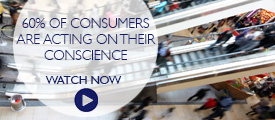Online responses to customer reviews by hotel managers encourage bookings, according to research by TripAdvisor. The review site analysed customer usage of its pages and found that responding to 50% of reviews increased the likelihood of hotels receiving a booking enquiry by 24% (compared to not responding at all). The study places management responses as the factor with the third biggest impact on customer engagement behind the number of photos and the total number of reviews that a property has.
Experts give their views on the power of online ratings, including TripAdvisor’s Minesh Shah, who offers advice on responding to negative reviews:
TripAdvisor’s research also shows that responding to reviews increases ratings. Properties which respond to 5%-40% of recent reviews have on average a 4.04 review rating, compared to a review rating of 3.81 for those which don’t respond. The highest factor influencing bookings and clicks on the site continues to be photos, with just one image increasing engagement by 138% compared to properties with no photo.
TripAdvisor advisor is not the only review site and reviews are also integrated into OTA sites such as Booking.com. TripAdvisor is currently the largest travel site with 280 million unique monthly visitors in the second quarter of 2014 and more than 100 new contributions posted every minute.
In response to a poll by TravelClick, 78% of hoteliers said that TripAdvisor was the social media channel which drove the most bookings to their property site.
The poll also found that these hoteliers are investing in other social media with two thirds now spending on Facebook advertising. Nearly 11% of the hoteliers polled named Facebook as a booking driver with the same number mentioning Google+. Facebook is also integrated into the TripAdvisor site and statistics from Facebook say that users logged in through Facebook contribute more than 1 in 3 new reviews on TripAdvisor.
If you’ve been sent to this page and you’re not yet on the circulation list to receive these regular briefings and you would like to sign up, you can do see here. It’s free.
Video clips produced by ybc.hpgcms.wpengine.com for the Hospitality Channel, including interview from industry conferences such as the IHIF conference as well as specific Hospitality Channel shoots.


